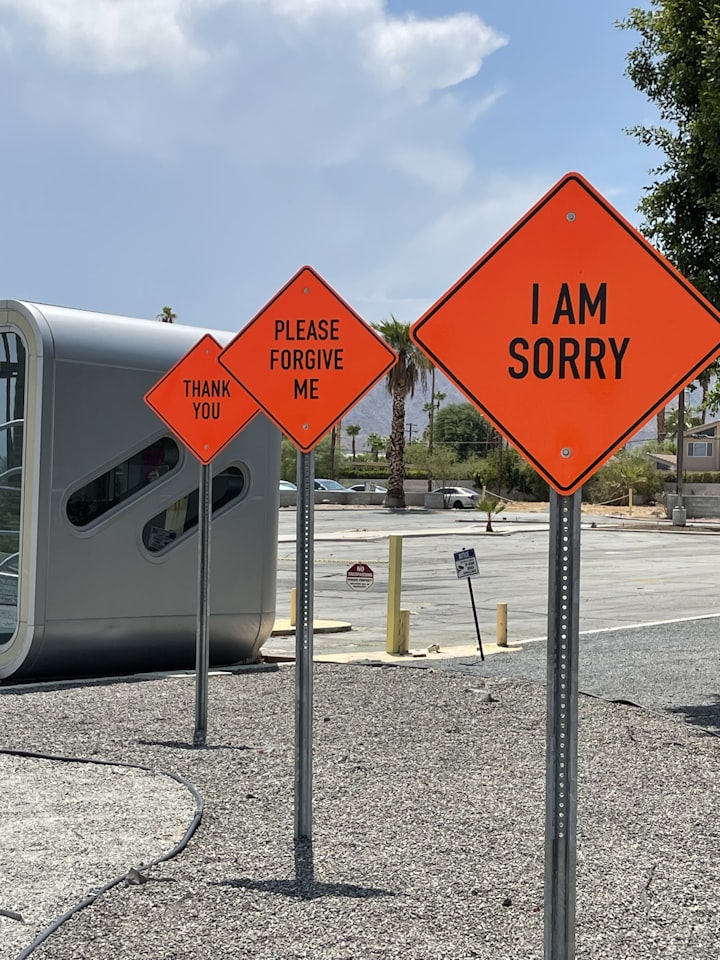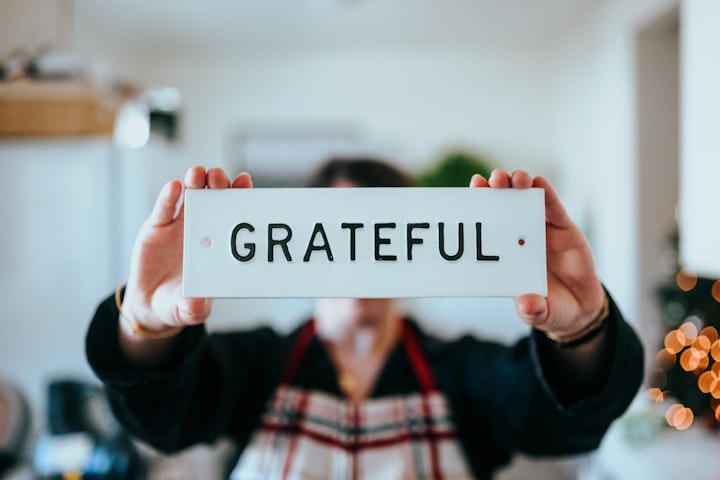Why You Should Say I’m Sorry to Yourself First
The power of two little words

This article was previously published by Mickey Markoff on Hubpages.
What does the phrase, "I'm sorry" make you think of? Maybe the first thought that comes to your mind is one where you accidentally bumped into the grocery store, and this is the phrase du jour. In lieu of 'excuse me', 'I'm sorry' makes a suitable, and regular replacement in your daily life. If this resonates you are not alone. Many people over-use the statement so much so that it can often lose its meaning.
Do you know what it means to be sorry?
Maybe you are one of the few who only use, "I'm sorry" when they mean to express true apology to someone in a situation where they perceive they have done wrong. For many, the way in which you use the phrase may speak more to your culture and your upbringing than anything else. In the United Kingdom, the phrase is often used to express confusion. It is heard often, but rarely as often to express apology for wrongdoing. Neither use is necessarily 'right', but the intention is important.
Wherever you come from, and whatever your reasons for using, "I'm sorry", the meaning of the word 'sorry' is never fully removed from its meaning of regret or penitence.
Feeling sorrow is normal.
Most humans, if they are lucky enough to have lived long enough, will have some experience which will make them to feel sorrow, regret.
If I asked you to think of a list of people whose forgiveness you wish you had, who would you think of? Over the course of a lifetime, your list may be a long one. Maybe you missed your son’s baseball games, or took one too many phone calls at dinner with the family. Perhaps you missed being present for a loved one’s final days.
When you think of forgiveness, do you consider yourself?
When we think about ‘forgiveness’, it is only natural to look to the external. Other people. Surely, you want the validation of your son’s forgiveness, or to know that your loved ones understand why you weren’t there for them in their time of need.
But the forgiveness of others is not something we can demand, control, or really, something we should seek. The old saying that ‘you can’t control what happens to you, only how you respond to it’ is true. And applies to forgiveness, too.
Forgiveness starts with you.
We cannot control if someone we care for chooses to forgive us. What we can control is who we choose to forgive. And we should start with ourselves.
If we cannot first forgive ourselves, how can we expect to be forgiven in turn?
This is one of the most powerful things you can do in your life. Learn forgiveness of your own actions. Forgive yourself. You are human. You are fallible. Your are here to make mistakes so that you can learn from them.
As a human, we come into this world with a blank slate, but we learn through our parents, our family, our experiences with others--how to relate to other people. The ways we learn to relate, however, may not resonate with everyone in the same way. Sometimes, even with the best of intentions, we may upset someone simply by the words we speak, a quick glance, or way of behaving.
It may not always be clear way our actions upset someone, but what is often clear with time is the lesson that we all see and experience the world differently. Despite our best intentions, we are bound to upset someone at some point in time. The important thing to consider is what we do when empowered with that knowledge. Do we have compassion for ourselves, understanding that, although we did the best we could within the context of our situation, our actions led to another's discomfort?
Empathy is a skill that can be learned.
Practicing empathy is a skill. And we can start by practicing it on ourselves. Forgiveness is powerful. It allows you to take your power back. It allows you to reflect on your actions, consider their ramifications, and what you may do differently next time in the hopes of a better outcome for everyone. It may not always be easy, but it is essential for survival. Humans will always make mistakes. The important thing is learning from them and choosing to do better the next time.
Self apology is powerful.
Forgiving yourself allows you to live by example so that others can see that it is possible. It is something that allows you to take your power back. It allows you to realize that no one but yourself wields the power of forgiveness. We may not always be able to control how others perceive us our our actions, but we can control how we choose to feel. Instead of feeling regret for missing that baseball game or spending too much time on the phone when we're with our loved ones, we can practice forgiveness. We can recognize that we are human, and will often fail, but we can just as often get back up if we so choose.
Sometimes saying sorry takes practice.
It is not always easy to have compassion for yourself, but it is something that can be profoundly liberating. It puts the power back in your hands. Self-apology recognizes the power of the personal, the individual, and the influence we can have on our own lives. It makes it okay to be human, make mistakes, and learn from them so that you can do better next time. Sometimes having compassion for yourself We all deserve forgiveness, and we should start with ourselves.
About Mickey Markoff
Mickey Markoff - Air and Sea Show Executive Producer in S. Florida. President of MDM Group, an innovative firm which develops effective multidimensional marketing campaigns. Mickey Markoff is currently Executive Producer of the 2022 Hyundai Air & Sea Show, a National Salute to America's Heroes.
About the Creator
Mickey Markoff
Mickey Markoff is best known as an airshow producer of the Air and Sea shows in S. Florida. He is also President of MDM Group, an innovative marketing firm. Markoff is EIC of the publication "Warrior Stories".






Comments
There are no comments for this story
Be the first to respond and start the conversation.